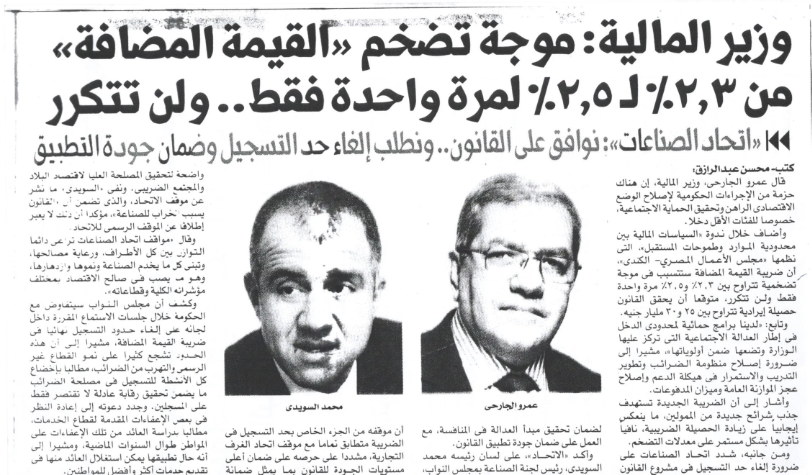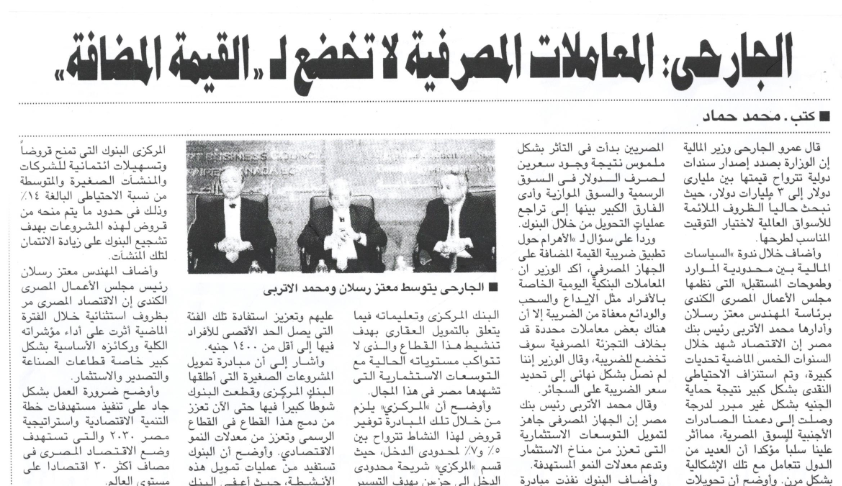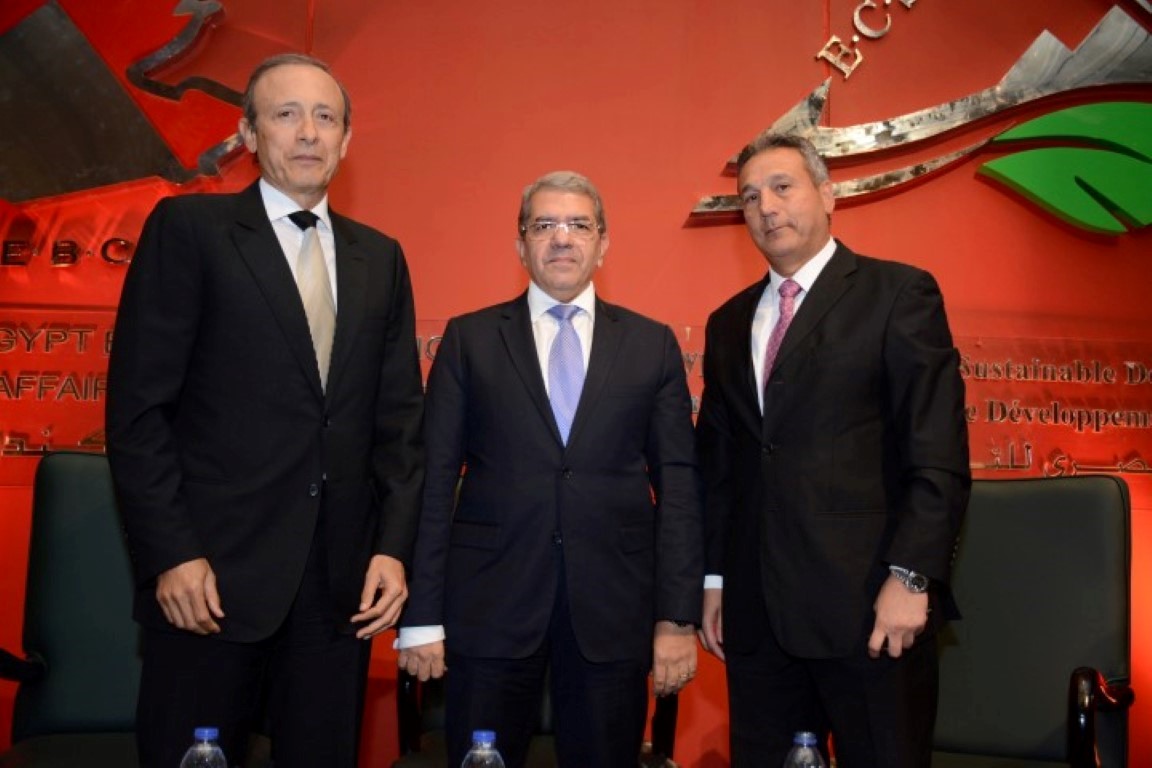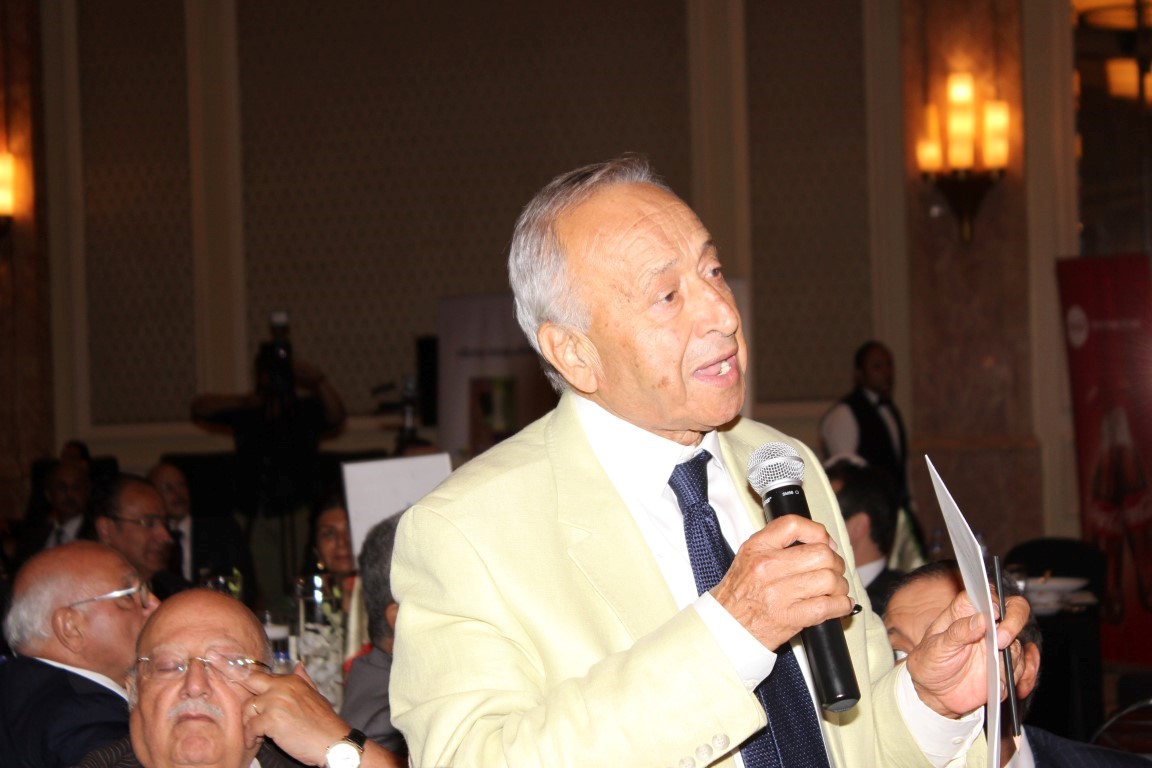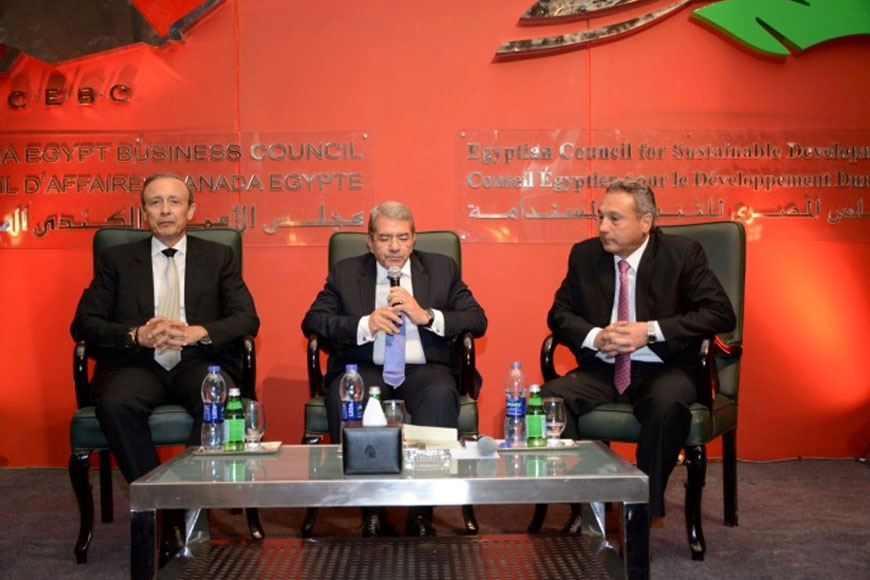
Date
Speaker(s)
Designation
Description
To address the current state of Egypt’s affairs and its fiscal policy, the Canada Egypt Business Council (CEBC) and the Egyptian Council for Sustainable Development (ECSD) hosted a discussion featuring H.E. Amr El Garhy Minister of Finance. Esteemed guests and previous ministers attended the event. These included ministers Othman Mohamed Othman, Dr. Hany Helal, Engineer Alaa Fahmy, and Cons. Hatem Bagato. The ambassadors of Serbia, Portugal, Pakistan, Armenia, Norway, Côte d’Ivoire, Sri Lanka, Cyprus, and the Czech Republic were also in attendance. They were joined by CEBC and ECSD’s esteemed members, guests, businessmen and reporters. Mohamed El Eletreby, Chairman of Banque Misr also co-hosted the panel discussion.
In his opening remarks Eng. Motaz Raslan reminded the audience that a little over a year ago, the CEBC hosted the previous minister of Finance, Dr. Hany Kadry for a discussion about the economy. At the time, minister Kadry expressed a dire need to strike a fine balance of fiscal stability, economic development, and social justice. Raslan expressed that there is a strong need for unconventional solutions in order to help alleviate the economic crisis that Egypt is facing, especially in light of the recurrent local and global happenings in the world. Raslan highlighted that the sectors of manufacturing, agriculture, tourism, and export in particular are facing the biggest challenges. This, combined with an increase in government spending on one hand, and a decrease in incoming foreign currency on the other, has only led to complicate Egypt’s fiscal situation. The Chairman pointed out to the states of Malaysia, Singapore, and Brazil as good examples for Egypt of countries that have been able to overcome their own complex financial crisis.
The minister assumed the floor following the Chairman and started discussing a brief history of Egypt’s root causes for the financial crisis it is facing. He said that throughout the last five years, a huge increase in government spending especially of foreign currency, along with a decrease in income has led to a budget deficit ranging between 7 to 8%. Since then, the minister noted that Egypt has been going through a viscous financial cycle. The huge deficit combined with little income led the government to take out big loans with high interest, which eventually leads to an even bigger deficit down the road. To put it in perspective, in 2010 less than 20% of the budget deficit consisted of loan interest, and now they have increased to reach 31%. The minister elaborated that we are entering next year with a budge deficit ranging between 320 to 330 billion EGP, where 90% of it is made up of loan interest. This cannot continue by any means, El Garhy insisted. The expected budget deficit of the fiscal year 2015/2016 is set to be at approximately 11.5%, the minister stated.
Minister El Garhy moved on to address one of the hottest and most controversial topics right now-the Value Added Tax (VAT). He started off by stressing the point that it would replace the current sales tax and that it would serve to fix some of the problematic issues that are inherent in the current sales tax, such as the issue of double taxation. He added that the new tax that is being presented nowadays in the parliament is mainly targeting high-income individuals, and to ease the strain on lower-income individuals. To make sure that the VAT doesn’t add a burden to people’s daily lives; approximately 52 goods and services that are deemed as essentials have been exempted from the tax. These include most food products, educational, health, and transportation services. All in all, the VAT is expected to increase the treasury of the tax authority from 25 to 30 billion EGP.
The shortage of foreign currency constituted in the US Dollar in the Egypt was also an issue that minister El Garhy addressed. He explained that the shortage is mainly caused by two reasons: the losses suffered by the tourism industry especially in the last nine months, and the lack of direct or indirect foreign investment in Egypt.
Major advancement in the manufacturing industry is needed to help Egypt’s economic stance as a whole. The minister highlighted that from the mid 1970s countries such as Turkey, Indonesia, and South Korea have been able to improve their economic outlook due to huge developments in their manufacturing sectors. Egypt should follow their example and manufacture products that not only meet the market’s local needs, but also aim for these products to be good enough to export. This would ease the pressure on mainly relying on tourism to provide us with foreign currency we need. Of course, reaching that point will take lots of time and effort, the minister said. That’s why the ministry is taking steps to pave the way for an environment that fosters manufacturing and investment in general, he added.
The floor was then opened for a questions session where a wide range of key topics were raised such as how to decrease corruption in institutions, improve investment laws, and entice exporting to untapped markets.


